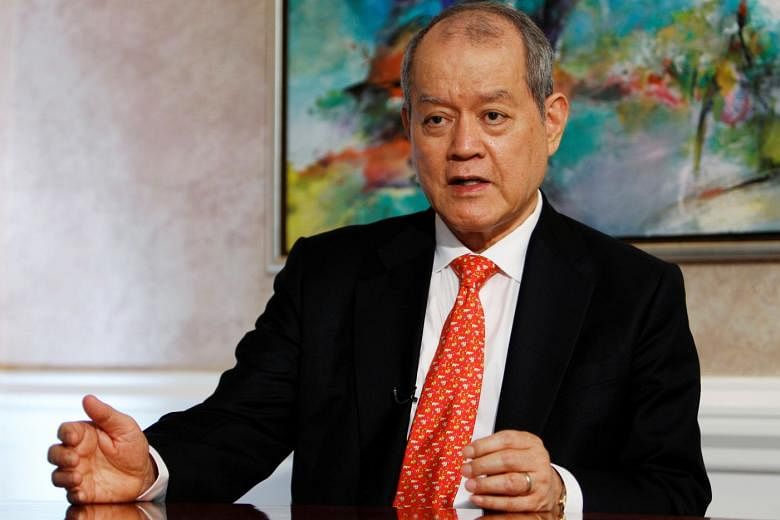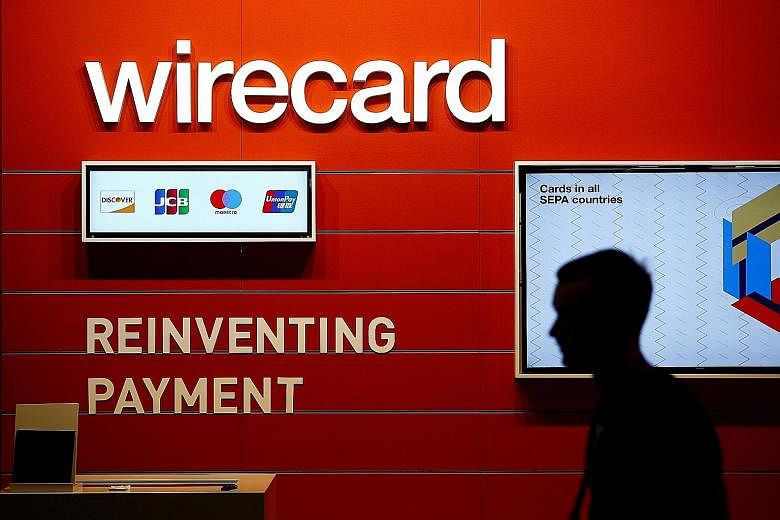While technology misuse can lead to the theft of millions with a few keystrokes, updated technology has also helped prosecutors find the proverbial needle in the haystack, or digital evidence.
In addition to staying abreast of cutting-edge technology, prosecutors in the Attorney-General's Chambers (AGC) have, in complex cases, partnered enforcement colleagues at a very early stage of investigations.
"This has been done in numerous cases such as, most recently, in the Hin Leong case where prosecution was instituted in a much shorter than usual time for cases of such scale and complexity," an AGC spokesman told The Straits Times.
Earlier this month, tycoon Lim Oon Kuin, founder and chairman of oil trader Hin Leong Trading, was charged with abetment of forgery for the purpose of cheating.
The AGC spokesman said crimes of such complexity typically take time to investigate.
"We have, however, been able to significantly shorten the time required to bring forth prosecution by leveraging technology and our close partnership with law enforcement agencies such as the Commercial Affairs Department and Corrupt Practices Investigation Bureau, as well as the Monetary Authority of Singapore," she said.
These agencies and AGC's crime division use technology to process and search voluminous amounts of data, sometimes hundreds of thousands of files, quickly.
"In some cases, we have seen first-hand how technology helped us find the needle in the haystack," the spokesman said, adding that the office strives to stay abreast of cutting-edge tech for this reason.
Other complex cases on which AGC and its law enforcement colleagues have worked on include matters involving 1Malaysia Development Berhad (1MDB) and the Wirecard scandal.
The 1MDB scandal was described as Singapore's largest and most complex money-laundering case, with United States officials alleging that US$3.5 billion (S$4.75 billion) was missing from the Malaysian state fund. Two Swiss private banks here were ordered shut, and assets were seized, among other things.
In relation to the Wirecard case, a Singaporean company director was charged earlier this month with fraud after allegedly falsifying letters from his firm, Citadelle Corporate Services, to Wirecard, making out that the firm held tens of millions in euros in escrow accounts.
Wirecard, the German digital payment company, had sought bankruptcy in June.
White-collar crimes fall broadly into three groups: fraud/cheating/criminal breach of trust, securities-related offences and corruption/bribery.
Noting the increase in cross-border financial crimes over the years, the spokesman said AGC and its law enforcement partners have worked closely with counterparts in many countries, including the US, Britain, Switzerland and Malaysia, to share information and trace, seize or repatriate funds.
"For example, we have worked with the French authorities in seizing more than US$10 million in the case involving Steep Rise Limited."
The move came after the French authorities probing fraud and money laundering in France detected suspicious transfers of money into bank accounts in Singapore.
AGC has also so far repatriated about $50 million to Malaysia in relation to 1MDB. "In this regard, one of our primary objectives is to protect Singapore's reputation and position as a clean and trusted international financial hub, and one of the few jurisdictions in the world that have corruption effectively under control," said the spokesman.
Industry sources see the white-collar crime challenge as an ongoing tussle where technology can help outpace potential perpetrators.
"The key to effective prosecution is gathering solid evidence. Technology helps a lot to gather that evidence, but intelligence work is equally important," said Mr Sam Vijaya, director of Global Oversight Solutions, a compliance, ethics and investigative consultancy.



